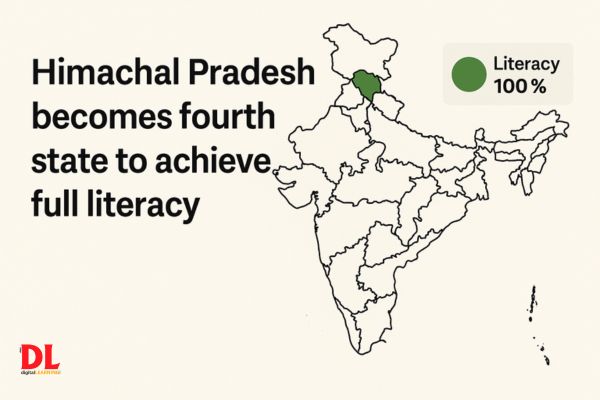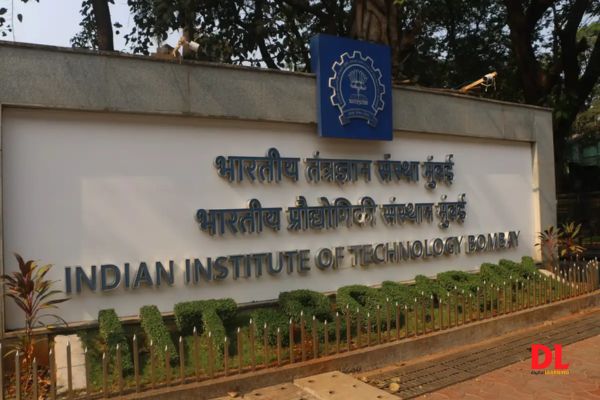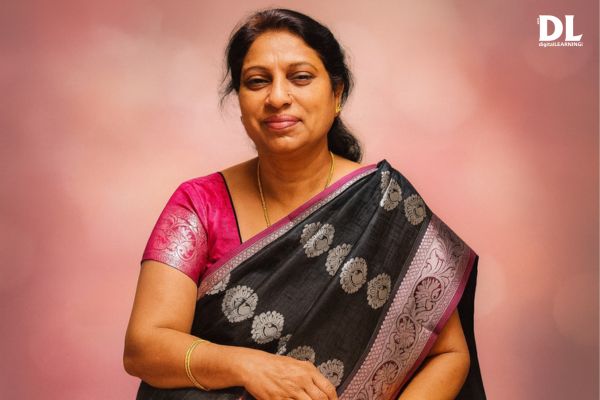In August 2019, I found myself in Shenzhen, China, as an expert for the DJI Robomaster competition. The event brought together one hundred school students from across China, selected through a rigorous nationwide process. These students, barely out of their teens, had undergone a month-long intensive training in robotics and artificial intelligence. Divided into sixteen teams, they were tasked with solving a complex robotic exploration problem – an undertaking that would challenge even seasoned engineering students.
While interacting with one group, I was struck by their use of advanced techniques such as Extended Kalman Filtering (EKF) for state estimation and Model Predictive Control (MPC) for system optimisation – concepts usually reserved for postgraduate courses at premier institutions like IITs. This moment was an inflection point for me. I realised that once students’ curiosity is sparked through hands-on experimental challenges, they can rapidly scale the steepest theoretical mountains. Experiential learning, I saw, is not merely an adjunct to theory – it is the catalyst that makes the desire for theory inevitable.
From that moment, I began seeking opportunities to embed such approaches into our own academic frameworks in India.
Experiential Learning at IIT Kanpur and Beyond
Before this Shenzhen experience, I had been involved with experiential learning through various research and competition platforms. At IIT Kanpur, my research group participated in international competitions like the Amazon Robotics Challenge and the DJI Robomaster.
These competitions pushed my students to design, build, and test systems in real-world, high-pressure environments. One memorable example was a mining rover that a group of IIT Kanpur undergraduates built from scratch and successfully delivered to IIT Dhanbad.
In the academic sphere, whenever I conducted GIAN courses or Faculty Development Programs (FDPs), I consciously embedded an experiential component. Additionally, I initiated a summer internship program for students from other institutions, where learning artificial intelligence and robotics always meant building and experimenting alongside studying the theory.
These experiences laid the groundwork for what would later become a transformative institutional program when I assumed the role of Director at IIT Mandi in January 2022.
Institutionalising Experiential Learning at IIT Mandi
IIT Mandi already had a strong philosophy of “learning by doing,” exemplified in its Design Practicum course, where students work in groups to solve real-world problems. I saw an opportunity to take this to a new level. I spearheaded the creation of a 100-hour course called Foundations of Design Practicum.
In this program, students are grouped and given challenging problems such as building a wall-climbing robot or a target-searching robot. They learn to design a chassis using Fusion 360 CAD software, fabricate it with 3D printing and CNC machining, embed electronics and sensors via PCB fabrication, and program the system using microcontrollers like Arduino. The final product is fully functional and remotely controlled via a smartphone.
In summer 2022, three of my former IIT Kanpur undergraduates came to IIT Mandi to train eleven students in these methods. With faculty support, these eleven became the core training team for a dry run that engaged 194 students in the Aug-Nov 2022 semester. Remarkably, these sessions often took place at night from 9 PM to midnight. Encouraged by this enthusiasm, we formally launched the course in February-May 2023 for 300 first-year students, supported by four faculty members and fifty tutors. Today, this is one of IIT Mandi’s most popular courses.
My aim has always been clear: once students experience the joy of building and solving real problems, their curiosity will naturally drive them toward deep-tech principles, eventually making them innovators and leaders.
Experiential Learning in the Context of NEP 2020
The National Education Policy 2020 mandates experiential learning as a core pillar of education reform in India. It recognises that rote learning and blackboard lectures alone cannot prepare students for a rapidly changing world, especially one being reshaped by AI and automation. The rise of GPT tools makes it clear that purely theoretical content delivery is no longer enough – what matters now is problem-solving ability, creativity, and the integration of theory into practical contexts.
Experiential Learning: Global and Indian Trends
Globally, experiential learning is embedded in systems like:
- Finland’s Phenomenon-Based Learning, students explore interdisciplinary projects rather than isolated subjects.
- MIT’s Undergraduate Research Opportunities Program (UROP), where undergraduates work directly on cutting-edge faculty projects.
- FIRST Robotics Competition (USA), which has inspired thousands of students to pursue STEM careers.
In China, robotics competitions like Robomaster and STEM incubators have produced students capable of mastering graduate-level techniques while still in school. This is the model I witnessed in Shenzhen.
In India, initiatives like Atal Tinkering Labs, Smart India Hackathon, and IIT-led competitions are fostering this culture, but on a smaller scale compared to the West and East Asia. According to a 2022 NITI Aayog report, less than 20% of Indian engineering students get substantial hands-on project experience before graduation, while in many Western universities, 70–80% of students participate in structured experiential modules.
Zoho – A Homegrown Success Story in Experiential Learning
An inspiring Indian example comes from Zoho Corporation, a global SaaS company founded by Sridhar Vembu. In 2004, Zoho launched the Zoho Schools of Learning (formerly Zoho University) to train talented youth directly after high school, bypassing traditional degree requirements.
Students, many from rural or underprivileged backgrounds, undergo intensive, project-based training in software development, programming, and communication skills. The approach is fully experiential, trainees work on real Zoho projects under mentorship, contributing to live products from the outset.
The results speak for themselves: Zoho School graduates often rise to become core developers, team leads, and product architects. This model shows that degree-centric hiring can be replaced by skill and experience-based pipelines, making it a compelling example of experiential learning applied in the corporate sector. For India, Zoho proves that industry can create parallel, high-impact educational ecosystems aligned with national skill and innovation goals.
Success Stories Across the Globe
- SpaceX Recruitment – Elon Musk’s company often hires engineers without formal degrees if they can demonstrate strong hands-on capabilities in building and problemsolving.
- German Dual Education System – Combines apprenticeships in companies with vocational education in schools, ensuring graduates are industry-ready.
- Stanford d.school – Known for its design thinking approach, where interdisciplinary student teams solve real-world problems for companies and communities.
Also Read: Empowering Educators & Creating Scalable Teacher Training Models
Why Experiential Learning is Critical for Viksit Bharat 2047
By 2047, India aspires to be a Viksit Bharat – a developed nation with innovation-driven economic growth, global leadership in technology, and a high quality of life for its citizens. This vision will require:
- Problem solvers, not just degree holders.
- Entrepreneurs and innovators, not just job seekers.
- Interdisciplinary thinkers, not siloed specialists.
Experiential learning directly feeds this need by:
- Nurturing Curiosity – Students seek out advanced concepts on their own when driven by project challenges.
- Building Confidence – They learn they can design, build, and deploy solutions to real problems.
- Encouraging Collaboration – Group projects mimic real-world team environments.
- Integrating Theory and Practice – Students understand why the theory matters when they see it in action.
- Fostering Resilience – Iterative problem-solving teaches persistence in the face of failure.
As I witnessed in Shenzhen and in Indian examples like Zoho, once the flame of curiosity is lit, students rise to challenges far beyond their formal curriculum. If we institutionalise such models across Indian schools, universities, and industries, we can create generations of young innovators ready to lead the country into 2047 and beyond.
Conclusion
Experiential learning is not an optional add-on to education, it is the bridge between curiosity and mastery, between theoretical knowledge and societal transformation. From a group of Chinese school students building advanced robots, to IIT Mandi’s first-year students fabricating intelligent machines, to Zoho’s rural youth developing world-class software, I have seen how “learning by doing” unlocks human potential. For Viksit Bharat 2047, India must invest in creating ecosystems: labs, competitions, company-led training schools, and real-world problem banks that make experiential learning the default mode of education. Only then will we produce not just graduates, but pioneers, who can turn India’s aspirations into reality.
Views expressed by Prof. Laxmidhar Behera, Director, IIT Mandi





























